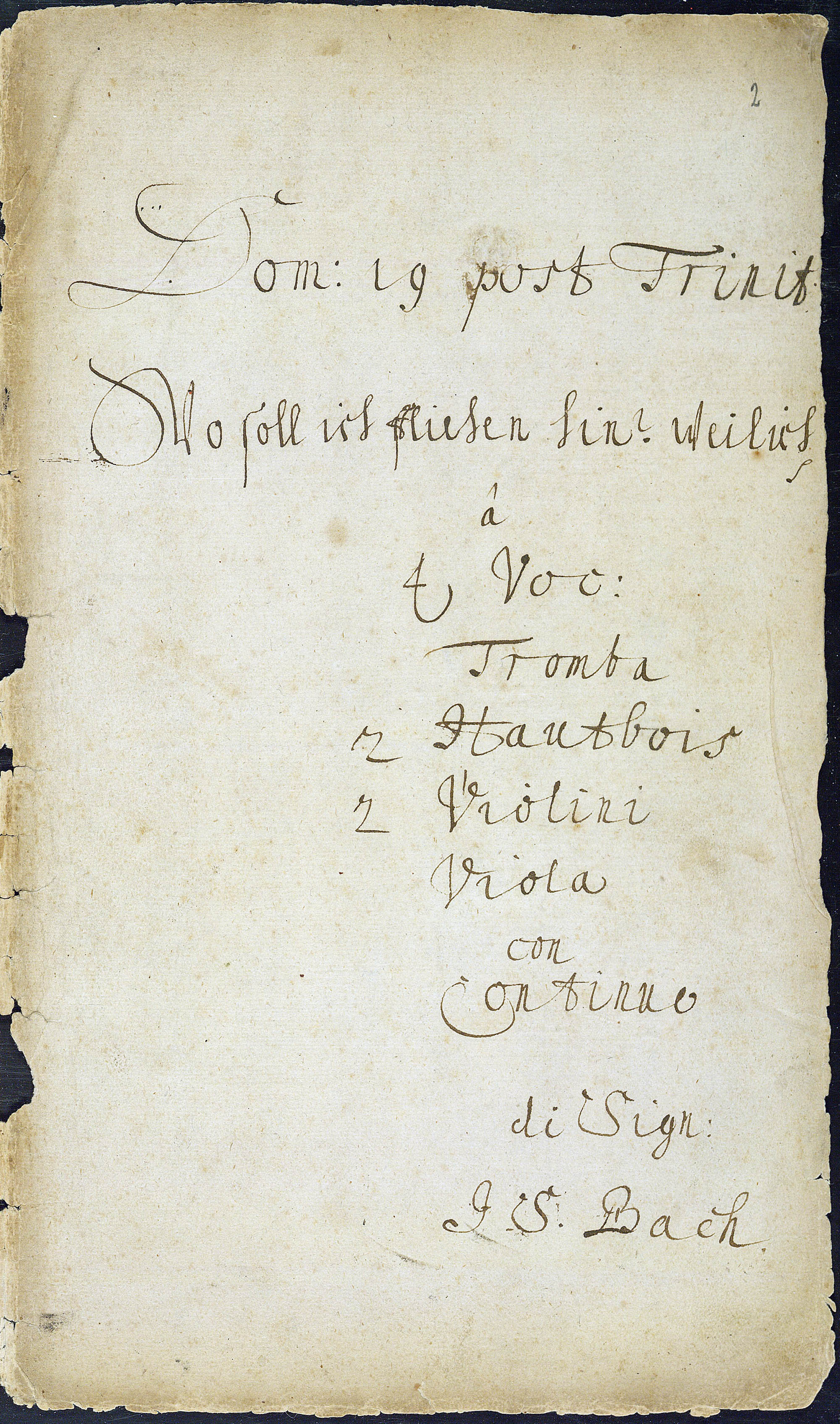Bach Cantata Day Information:
Trinitatis XIX or 19th Sunday after Trinitatis
19th Sunday after Trinitatis. Liturgical period : Ordinary time II.
Occurrences: October 6 2024, October 26 2025, October 11 2026, October 3 2027, October 22 2028, October 7 2029, October 27 2030, October 19 2031, October 3 2032, October 23 2033, October 15 2034, September 30 2035, October 19 2036, October 11 2037.
Music for this day
- Ich elender Mensch, wer wird mich erlösen, BWV 48
(first performance 3 October 1723, Leipzig period) - Wo soll ich fliehen hin, BWV 5
(first performance 15 October 1724, Leipzig period) - Ich will den Kreuzstab gerne tragen, BWV 56
(first performance 27 October 1726, Leipzig period)
Trinitatis XIX is the 19th Sunday after Trinitatis. Three Leipziger cantatas for you from the first three annual cantata cycles.
Ich elender Mensch, wer wird mich erlösen, BWV 48, is from the first cantata cycle and quotes from St. Paul's letter to the Christians of Rome, stressing the need of the sinner for redemption.
Wo soll ich fliehen hin, BWV 5, is from his second cantata cycle, and so uses a Lutheran choral as inspiration. This choral was written in 1630, during the Thirty Years war (1618-1648), by Johann Heermann. This cantata was not written specifically for Trinitatis XIX, but was more of a cantata for both penitence and solace.
The day after tomorrow you can listen to the cantata for the funeral of Queen Christiane Eberhardine (Laß, Fürstin, laß noch einen Strahl, BWV 198). You may then recognise parts of the first movement of Ich will den Kreuzstab gerne tragen, BWV 56, as Bach used that theme to enter a religious reference in the otherwise secular funeral cantata that he wrote a year later.
Extra information
The Netherlands Bach Society website has more information and a performance of BWV 56:
https://bachvereniging.nl/en/bwv/bwv-56/
Playlist
WBC60-Trinitatis XIX or 19th Sunday after Trinitatis

Choose one of these streaming services to listen to this playlist:
Image of the day

The cover page of Wo soll ich fliehen hin, BWV 5, from Bach's own manuscript, part of the Stefan Zweig collection at the British Library.